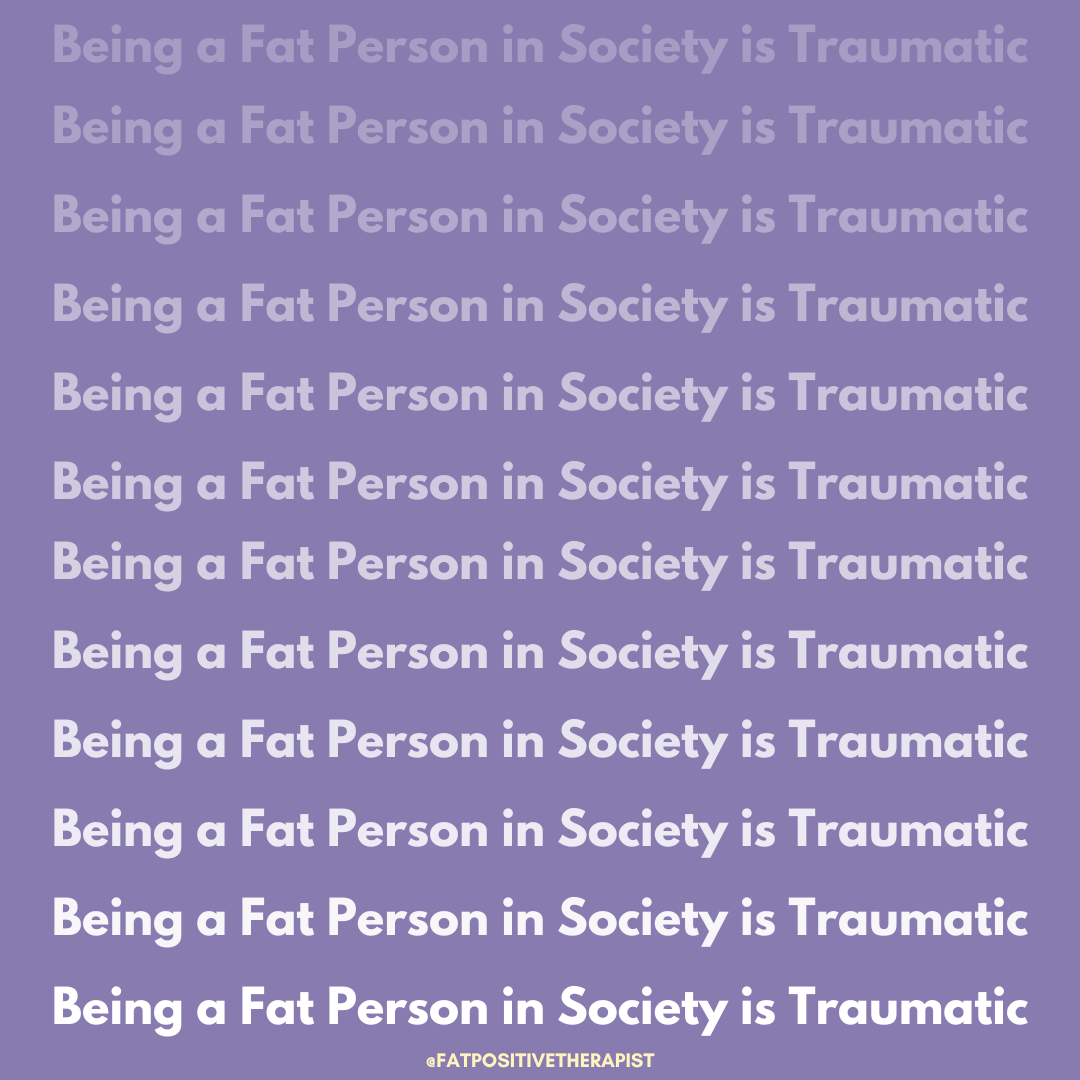*Disclaimer: This is not a shit on GLP1s post. This is a call to be conscious consumers. TW: FATPHOBIA, EATING DISORDERS
Most of you know that my main love, gig, vibe is being a therapist. I work individually with clients as they explore fat trauma and the real life bullshit that they have to endure while living in a larger body. This work incredibly is incredibly grounding for me. Social media has the tendency to exist in binaries of the pro or con. Never allowing for much time to be spent understanding the complexity of being human.
Providing this background feels important for my readers to understand that I am not judging anyone for seeking intentional weight loss. That I have clients who have to take these medications, whether it be to qualify for surgery or for a myriad of other reasons. Just know i see you and I hear you. While I don’t condone publicly celebrating weight loss, I do empathize and understand the individual position of having to make these challenging choices.
What I want to explore today is the increasing trend of tying GLP1s to mental healing improvement. This I have a HUGE problem with. Western mental health likes to assess the individual in a vacuum. Intentionally ignoring social dynamics and systemic distress in favor of pathologizing the individual. We know this is a ploy to avoid identifying capitalism as a foundational issue in mental health, but I digress. When viewing mental health from this vantage point, we ignore how our environment impacts our anxiety and depression symptoms.
Not including social determinants of mental health creates a pretty picture that positively correlates GLP1s and a decrease in depression and anxiety. Asking patients on this medication mental health related questions before and after weight loss and seeing a decrease in mental health symptoms is not at all surprising. Being treated with respect and as a human has that impact on our anxiety and depression symptoms. Again, what we are ignoring is how social treatment impacts mental health.
Diet culture has ALWAYS sold weight loss as the fix all. Doctors prescribe weight loss as the CURE to all ailments. We are convinced that weight loss will solve all of our problems. Of course GLP1s now solve anxiety and depression, right? Lets worship at the altar of Ozempic.
While I can’t say that Ozempic does not impact mental health we also can’t say that the medication alone is the culprit for a decrease in mental health symptoms. More specifically, we need to consider how society treats you when you are fat and have experienced weight loss as a foundation part of this equation. My therapy work is deeply rooted in the impacts of oppression and trauma. Humans are impacted and interconnected to our environments. Western psychology likes to minimize the connections between because healing would lead us away from production. Rant for a different day.
As a fat person who has lost weight and as an advocate and holder of thousands of fat stories, I can confidentially share that losing weight is an incredibly jarring experience socially. Suddenly you are valuable. People are nice to you. People pay attention to you and listen to your feelings. Weight loss leads to a rehumanization of your existence. The glee and elation you feel is a high unlike any others. Weight loss is a highly addictive emotional drug promising belonging and community.
Sounds great, right! Unfortunately, we also know that this feeling, like most highs, is not sustainable. Eventually the weight loss levels out and we are no longer on the receiving end of praise. The compliments and attention that we tied our value to no longer exists, resulting in a crash in mental health and an increase in eating disorder behaviors.
Photo Credit: Lindley Ashline
When our self worth is tied to our appearance we will crumble.
95% of people who engage in weight loss gain the weight back after 5 years, so what happens to our mental health if we discontinue the GLP1 and the weight returns? The values and self worth that we constructed were dependent on our proximity to thinness. How is our mental health impacted when our weight plateaus? Or if we gain the weight back? How do we restructure our self worth when society returns to shunning us due to our body size?
This pattern is carved in my soul from years of yo-yo dieting. Which is probably why my red flags were raised when I started hearing that doctors are presenting Ozempic as a treatment for anxiety and depression. The bigger picture here might have nothing to do with the drug itself but from the way we dehumanize fat people. I don’t know about you but if people suddenly started treating me like a human being, you bet my mental health would magically improve.
THOUGHTS AND GOALS
Honestly, the goal of this conversation is to encourage a more critical exploration of GLP1s and mental health. Instead of that urge to connect all positive shifts to weight loss, maybe we can pause and reflect on how we are being treated by others. How society has been shoving thinness down our throats since birth. Absorbing messages about our failures or “big back” nature due to our genetic body size.
Do not fear fleshing out the nuance. Be critical about the information you are taking in. If something is sold as a magical treatment, ask tons of questions. Humanity doesn’t have a cure all. This doesn’t exist. We cannot deny the power of social approval and a decrease in oppression on our mental health.
However, we are building self worth on a wobbly foundation that is dependent on things we cannot control. The treatment of humans should not be shifted based on body size, skin color, sexuality ect. We deserve self worth constructed from our inherent value, not on how we can manipulate our bodies to meet the thin white ideal.
*Special note: If you are taking medications that create bodily changes, find body safe spaces to be supported. We shouldn’t feel shame from taking these medications. Everyone deserves support and exploration.






